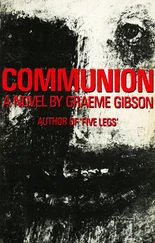Shuffling forward, guarding their places with fierce looks and fiercer words, the line of people was a depressing sight. They stood with bundles of bedding, bags of food, restless children, and fearful hearts. Soldiers walked up and down, watching them with unwavering vigilance. Since the attacks had started in earnest, they had lost friends and whatever semblance of good nature they might once have possessed.
The routine was exactly the same for all refugees. You stripped in a tent and your clothes and belongings were searched. Some valuables and other items were being confiscated. Any animal larger than a dog was also confiscated. The price of handcarts had long since gone beyond the purse of ordinary folk. In any case, most of them had nowhere else to go so they had to sit tight in the city and try to stay clear of the fighting.
Now and then a ripple of anxiety ran through the queue as someone was turned away or arrested. For the most part it was Tunduri monks and nuns that were being prevented from leaving. Jeniche couldn’t understand why, unless the foreigners were looking for someone in particular.
She slipped out of the shrine where she had been sitting in the shade. It was pointless thinking she could cheat the system. Some other way out of the city had to be found. There was one, but it was a last resort. It was becoming apparent, after days of traipsing about the hot streets and observing the queues and the searches at the city gates, that it was the only resort.
Following a group of water sellers as they went bow-backed up into the main market, Jeniche became tangled with a group of Tunduri in their mossy green robes. She wondered how they had survived for so long, trapped in the city. Begging mostly, she realized, as they turned to her.
It was the first time she had looked at any of them closely. True, she had been surrounded by them when she had been across the river to the caves during the festival and later when the boy was talking to her. But they had just been a crowd, excited, lively, handing out food the first time. She bet they wished they had kept some for themselves. That second encounter had come when they were exhausted and conscious of just how great the distance was between themselves and their home.
Her own supplies of money and food were getting low, but she fished out a crown from her belt and produced it from the ear of a bemused, older monk. He scurried off to catch up with the others and it dawned on her he looked a lot like the old monk who had been with the boy. She dodged into the nearest alley, just as a young face peered at her from amongst all the green robes, confirming her suspicion.
Jeniche trailed up the alley and into a quiet square. With a sharpened sense for trouble, she kept moving. She had no desire to get tangled up with anyone in whom the soldiers had taken an interest. Besides, the place was much too quiet and she could see a patrol approaching. Once out of their view she ran toward the market, moving up through a maze of passages and paths, back yards, and small public gardens, dodging beneath limp, sun-bleached washing, raked by the intense and suspicious scrutiny of groups of women gathered on precarious wooden balconies.
Where people gather to trade and buy and gossip, there will always be places to sit and drink and eat. The great market square of Makamba stood at the top of the hill, far enough from the Old City gates to have pretensions of grandeur, close enough for the traders to live there and bring their produce up from the dockside warehouses on a daily basis. To call it a square was an exaggeration of the term. It was just a place where several main roads met, creating a space broad enough for market stalls, customers and carriage traffic to co-exist without too much disharmony. And between the buildings that fronted the square were numerous, narrow alleys where all those places you could sit and drink and eat plied their trade.
Many of the eating houses never closed, catering for different clientele, depending on the time of day and season of the year. Different establishments catered for different pockets as well. Those that fronted on to the square itself, furthest from the Old City, were considered respectable enough for merchants and even their wives – suitably chaperoned, of course. The deeper you went into the alleys, especially those close to the Old City gates, the meaner the establishment and the better your eyesight needed to be, not just to find your way around, but also to avoid getting mugged.
Jeniche moved away from the bustle of the marketplace and the watchful eye of the foreign soldiers into a long and winding passage. Near the end, to one side, beneath a sign caked with the grime of decades, was a small tavern favoured by people who liked to stay away from trouble and keep themselves to themselves.
She went down the steps and through the open door, passing between busy tables to the back of the room. There, a wide arch opened on to a shaded courtyard. A table by the kitchen was free and Jeniche sat, grateful for the chance to rest out of the brightness.
‘Hello. Do you want anything to eat? Plenty of chicken, still.’
Jeniche looked up. A pale young woman looked down at her, smiling. ‘Er…’
The woman giggled. ‘You don’t remember, do you?’
It took a moment. ‘Dillick’s. You’re smiling. That’s what threw me.’
‘I’d love to know what you said to him. He threw us both out, told us not to come back, and locked up. Not seen him since.’
‘What about…?’ Jeniche had no idea of their names.
‘In the kitchen. The work’s just as hard here, but there’s no Dillick pushing you around and breathing all over you.’
‘Well, I didn’t say that much. And the chicken sounds great. Some bread. Small beer.’
‘Must’ve been that big bloke, then, later on.’
Before Jeniche could ask, the waitress had gone. The place stayed busy all afternoon and Jeniche didn’t have a chance to ask any more, so pushed the thought to one side. Dillick must have upset a good few people in his time. He was that sort of person.
With a full belly, rested legs, and a half workable plan for getting out of the city with her treasures intact, Jeniche wandered back toward the market. The place seemed normal. The presence of foreign soldiers was obvious, but business had returned to its usual, noisy level. People were gossiping. Even some of the jugglers and other entertainers were putting on a show.
Making the best of her mood, she moved toward the western end of the market, where it gave on to the gardens at the front of the university. It was time to say goodbye, here and elsewhere.
The road narrowed at this end and although there were fewer stalls, they catered to the large number of students by offering cheaper produce. The crowds pressed in around her. It was hard to believe so many people had left the city. The rest must be right here, she decided, determined to keep things as normal as they could. For all that, there were signs of wear and tear, signs of the invasion. Not least the group of Tunduri. If it weren’t for the fact that everywhere you went, there seemed to be little knots of them drifting, begging, still finding time to stand and stare, she might start to believe they were following her round the city. She shrugged, trembling a little at the sight beyond the last of the stalls.
Rubble still lay across the gardens where the tower had been felled during the initial assault on the city. Most of it was gone, deep cart tracks cutting through the grass and flower beds kept watered by the university’s deep wells. But a long spine of grey stone remained, like the twisted vertebra of a stripped carcass.
Oblivious to the noise and bustle around her, she watched a team of labourers loading a cart, seeing the tower as she best remembered it, stretching up to the starry sky. When she was not thieving or producing coins from Shooly’s ear, she would sit atop the tower in Teague’s study.
Читать дальше












